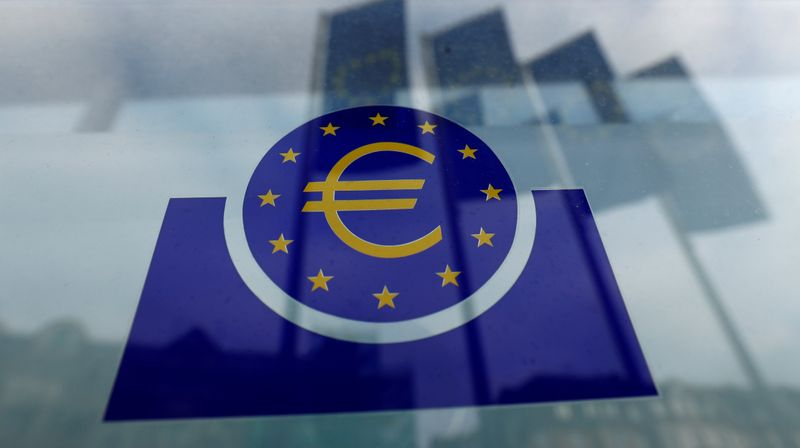ECB to chart steady course even as the outlook dulls By Reuters

By Balazs Koranyi and Francesco Canepa
FRANKFURT (Reuters) – The European Central Bank will keep its easy money policy unchanged on Thursday but hold the door wide open to further stimulus as the spreading second wave of COVID-19 dims an already weak outlook.
Having extended stimulus well into next year with a massive support package in December, ECB policymakers are keen to pass the baton to governments and fiscal policy to keep the euro zone economy afloat until normal business activity can resume.
But fresh lockdowns, a slow start to vaccinations across the 19 countries that use the euro, and the currency’s strength will increase headwinds for exporters, challenging the ECB’s forecasts of a robust recovery starting in the second quarter.
ECB President Christine Lagarde is likely to say more stimulus is not needed now as the ECB has woven so much flexibility into its support schemes it could easily ramp them up without seeking a fresh round of approval from policymakers.
“The recalibration of the ECB’s policy instruments in December has been well absorbed by markets, which means there is no urgency for the ECB to signal a new policy stance,” Danske strategist Piet Haines Christiansen said.
The ECB will announce its policy decisions at 1245 GMT, followed by Lagarde’s news conference at 1330 GMT.
NOT SO BAD
Instead of policy action, Lagarde will seek to provide support through nuanced communication, making clear she is aware of the risks while arguing they may be overstated.
She is likely to concede that the immediate future is more challenging than some of the more optimistic forecasts allow, and that commercial banks’ plans to restrict access to credit will be a drag on growth.
But that should not impact the longer term, especially since many key uncertainties have been resolved: COVID-19 vaccines are being deployed, a Brexit deal has been done and President Joe Biden’s inauguration on Wednesday concludes the U.S. election.
Benign market indicators support Lagarde’s argument. Stocks are rising, interest rates are steady and government borrowing costs are trending lower, despite some political drama in Italy.
There is also around 1 trillion euros of untapped funds in the Pandemic Emergency Purchase Programme (PEPP) to back up her pledge to keep borrowing costs record low.
Recent economic history also favours the ECB. When most of the economy reopened last summer, activity rebounded more quickly than expected, indicating that firms were more resilient than had been feared.
“Wisely, we believe the ECB will now be less sensitive to market pressure and inflation expectations, calling increasingly on fiscal policy to be engaged in determining future inflation,” Societe Generale (PA:SOGN) economist Anatoli Annenkov said.
Lagarde may also bat back questions about the euro, arguing that its firming has been almost exclusively against the dollar. On a trade-weighted basis, more relevant for exporters, the single currency has actually weakened since the ECB’s last policy meeting on Dec. 10.
Inflation is set to remain a thorn in the ECB’s side, however, falling well short of target for years to come even if surging oil demand helps put upward pressure on prices in 2021.
With Thursday’s decision, the ECB’s benchmark deposit rate will remain at minus 0.5% while the overall quota for bond purchases under PEPP will be maintained at 1.85 trillion euros.

